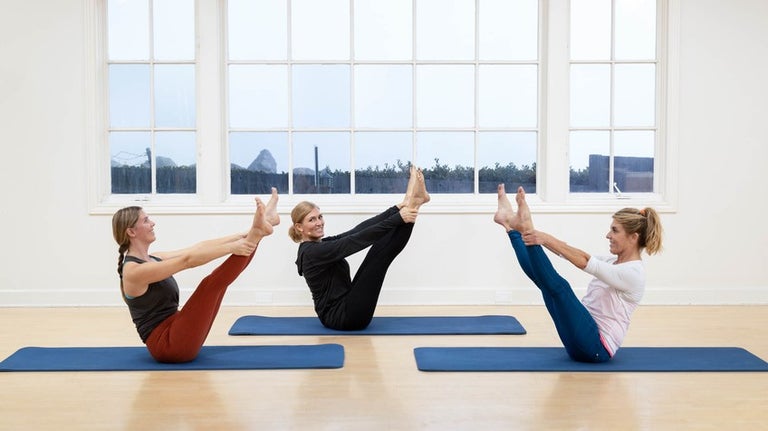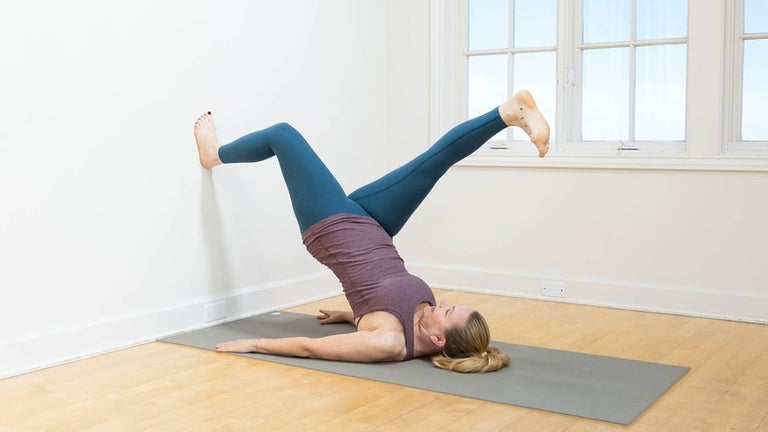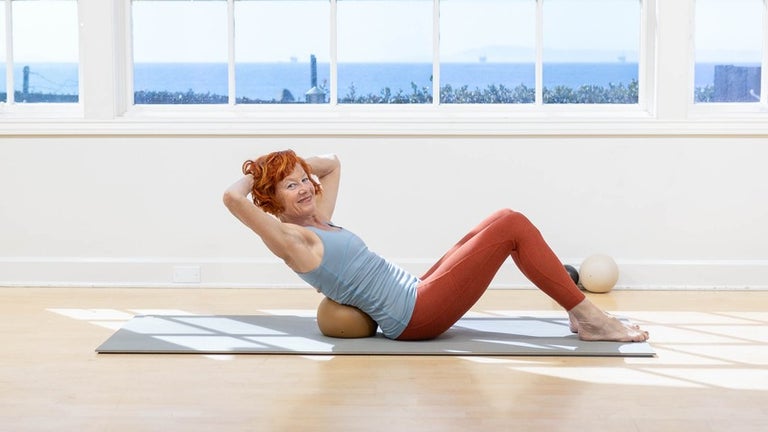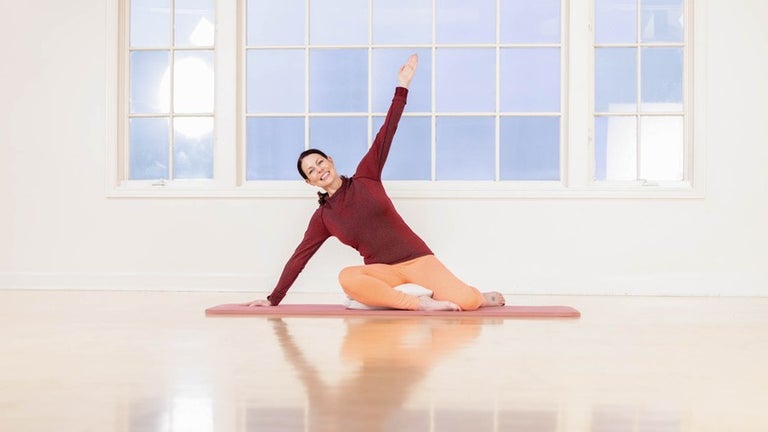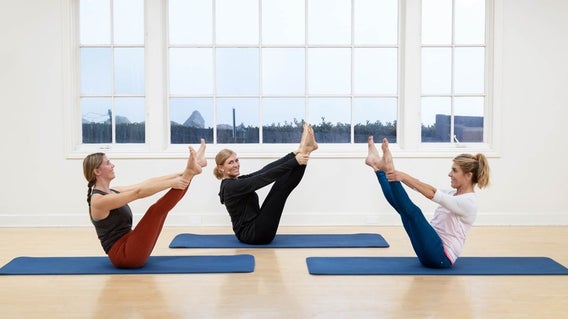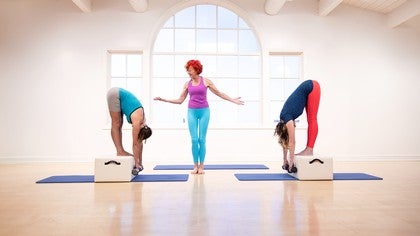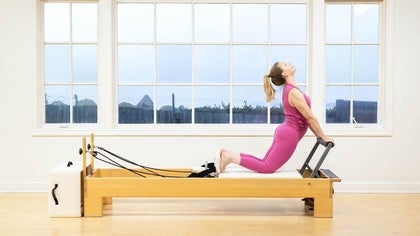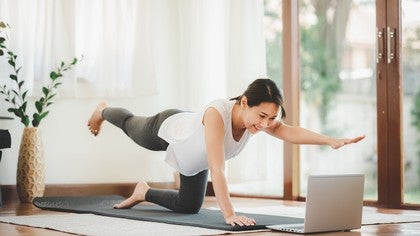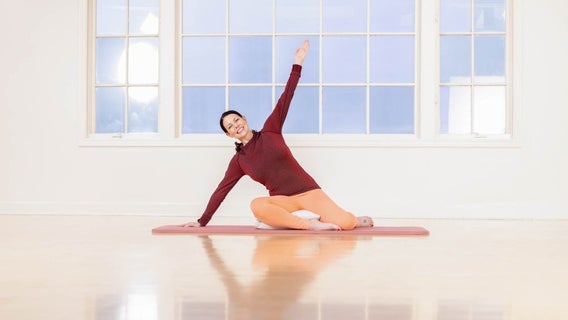Pilates at Home for Beginners
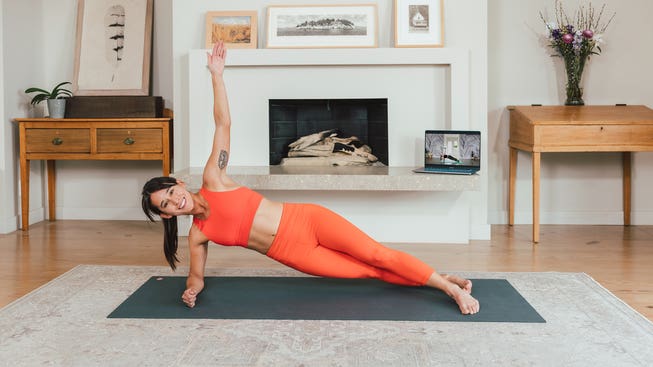
Pilates Anytime, Anywhere
Pilates is a mind, body, and spirit practice that incorporates stability and mobility work primarily focused on using core (abdominal, back, and glute) muscles. Those new to Pilates can begin with a home practice and Mat Pilates videos and books are widely available. A home practice is safe for generally anyone free of injury or chronic back pain. While beginners can also benefit from taking in-person Mat or Reformer Pilates classes with a trained teacher, many teachers encourage homework between classes.
Setting Up Your Space
When setting up your space, be sure to have enough room to stretch your entire body out on the ground and the ability to reach your arms and legs in all directions unobstructed. A quiet space is ideal and if you plan to stream Pilates videos, you will want to choose a room where that is possible. Because you are primarily using your own body to practice beginner Mat Pilates, you can bring your exercise anywhere that is convenient. To improve focus, you may opt to dedicate a corner of your home or a specific room to your Pilates practice.
At-Home Pilates Equipment
Practicing Pilates at home requires no more than a flat surface and a Mat or even just a rug. Small props including the Magic Circle, Overball, Theraband, and head supports may be added to the mix, but they are not necessary to begin practicing Pilates. If you have the space and would like to explore Reformer Pilates, it is possible to purchase Pilates equipment. The AeroPilates Reformer is a popular option given it is less expensive than traditional studio Reformers. While practicing on an AeroPilates Reformer at home is safe and effective, we recommend first working with a Pilates teacher before beginning your home Reformer practice. Reformer Pilates is a nice addition to a Mat work, but it is not necessary to begin your Pilates journey.
Home Exercises for Beginners
Good Resources for At-Home Pilates
There are many great resources such as books and videos to assist you in your home Pilates practice. Choose teachers and visuals that are easy to follow and comprehend. Online streaming services like Pilates Anytime are also a great way to find a variety of classes with well-trained teachers at all levels. In fact, many well-known Pilates teachers are Pilates Anytime members, who practice with our classes and learn new teaching skills. One great trick is to watch a class at least once before taking it, allowing you to get a handle on the pace, the exercises, and language. You can also try individual exercises separately to improve your form before taking the entire class. One of the great things about Pilates Anytime is that with a low monthly fee, you have unlimited views of any class you choose. The classes are always there for you, anytime!
Making the Most of Your Home Practice
Practicing Pilates from home offers some huge benefits including cost, availability, and time management. You can practice Pilates on your schedule and free yourself of traveling to and from a studio. Feel free to move at your own pace, repeat exercises that you want to improve, or try sequences that simply feel good. We recommend practicing at least twice a week and making it a point to keep those appointments. Don't get distracted with other noise in the room. If you can close the door to the rest of your household, do it, and allow yourself to focus on your practice. You may also want to take a private session from a Pilates teacher to get started or periodically check your form and advance your practice. Stream videos, take notes, and create your own Pilates routine. Enjoy the time and notice every bit of progress.
Featured Classes
We have a wide variety of beginner classes designed to suit your needs.
Tips and Advice for Beginners
One of the great things about Pilates is that it can be practiced every single day, and even a beginner can jump into a daily practice. You may want to mix up your workouts and take an easier class one day and a more challenging one the next day. Alternatively, you can choose a class that focuses more on the abdominals one day and glutes the next. The beauty of Pilates is that in using your entire body, you have many directions and options with over 500 exercises in the repertoire to choose from.
Keep in Mind Some Modifications
Pilates shouldn't be painful for beginners so don't be afraid to use modifications offered for the exercises. Bent knees versus straight legs, head and neck support, and moving at a slower pace are all acceptable modifications. A Pilates teacher will tell you that the number one thing is not to get hurt. Listen to your body and if something feels off or too strenuous, modify or skip that exercise.
At-Home Pilates Frequently Asked Questions
Do you need a Reformer to practice Pilates?
No, you do not need a Reformer to practice Pilates. In fact, it is absolutely possible to practice Pilates using just your own body. In fact, Joseph Pilates originally developed his method on the Mat! Mat Pilates includes over 500 different exercises, most of which only require your body and a flat surface. It is the perfect, no excuses way to train your body.
Does Pilates only train your core?
Although Pilates is known for corework, it is a full-body workout. While you may be focusing on your core, your arms and legs are also being trained with the Pilates exercises. Pilates is an incredibly dynamic movement practice that incorporates your breath, balance, and focus with strength and flexibility training.
Is it better to do Pilates in the morning or afternoon?
Many people like to schedule their Pilates practice for first thing in the morning so that nothing gets in the way and their bodies are ready to take on the day. Other practitioners like to end their day with Pilates, as it is a great way to wind down and undo all the stresses of your day. Listen to your body to figure out which time of day works best for you.
Your Pilates Anytime Membership Benefits
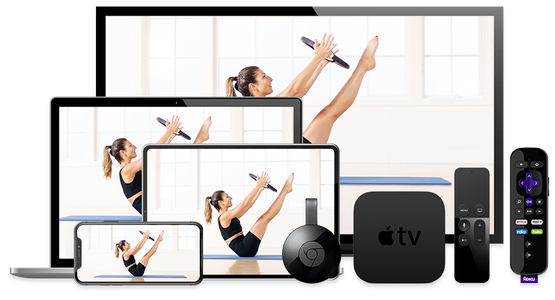
- 15-Day Free Trial
- Unlimited Access to Thousands of Classes
- 95+ Pilates Programs and Challenges
- No Ads
- New Videos Weekly
- Available on All Your Favorite Devices
